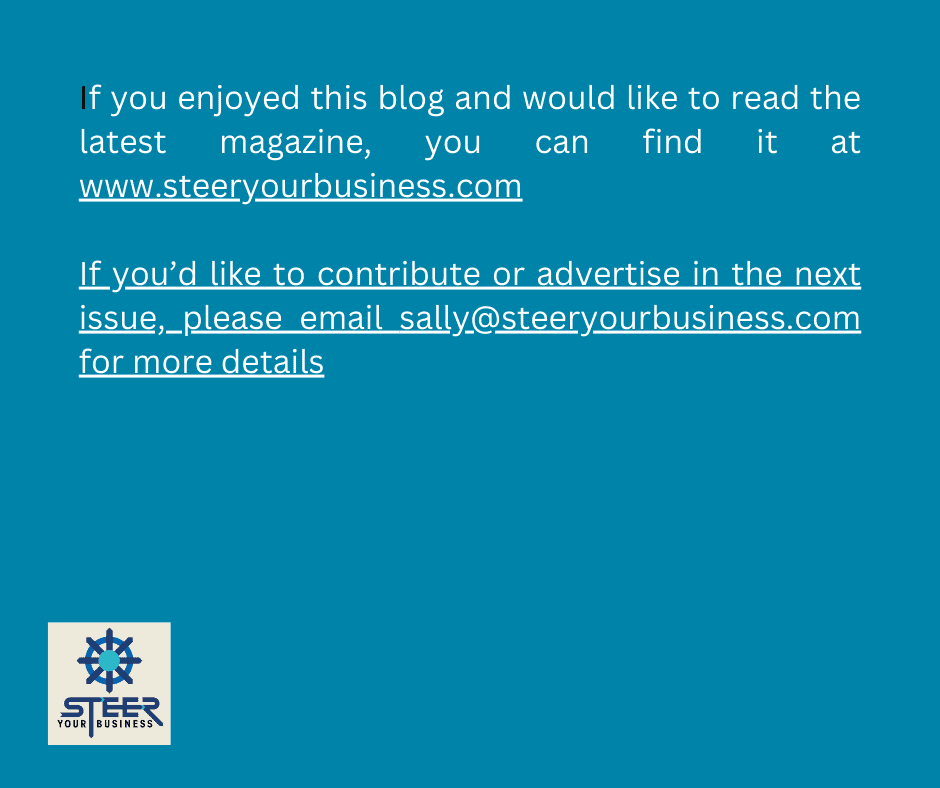Selling a business is often viewed as a highly complex process, not least when trying to find the ideal buyer. This is why business owners should consider a management buyout (MBO) as an attractive succession option that can allow for an early and profitable exit from their business.
Why should I opt for an MBO?
MBOs can be a much more straightforward option when selling a business while still retaining the core business’s structure and jobs. While MBOs can be an advantageous option for all parties, management teams will need to access the required level of finance, or suitable repayment terms, to be able to complete the transaction.
Bridging the MBO cash gap
Business owners looking to sell their company will want to walk away with as much money as possible, and certainly the valuation sum for the business. However, this is where an issue can arise as, in certain cases, there can be a cash gap between the valuation, the price sought for the business and the funding management can raise.
In such situations, owners may need to consider an element of deferred consideration or earn-out that can be a smaller hurdle to overcome when selling to the existing management team. There are also a variety of funding sources available to management teams, which we discuss below, but obtaining the correct debt, equity and working capital structures relative to the business will be crucial.
Funding options available for an MBO
Financial commitment and thorough assessment
It’s common place for any lender or investor to require the management team to have some ‘skin in the game’. This may not be a huge amount compared to the overall transaction but is viewed as being sufficiently meaningful and an indication of financial commitment.
With any form of borrowing, be it debt related or a type of asset-based lending, lenders will need to satisfy themselves that the business can service the borrowing it is seeking to introduce. Lenders will want a detailed financial pack of information that enables them to understand the historic performance of the business, current trading performance and future forecasts, and the assumption that sit behind the numbers. As such, lenders would expect this to be presented as a fully integrated, P&L, Balance Sheet and cashflow model. This, of course, isn’t the only consideration lenders will undertake as they will also want to understand the capability of management and their background as well as their own financial standing.
Lender and investment options
Tier 1 lenders, such as banks, often provide the most attractive options in terms of cost, but they are also more stringent in terms of credit criteria and security requirements. Should a particular transaction not fit the high-street banks there are other alternative lenders who will provide debt options for MBOs, although they will typically be at a higher rate of interest.
Dependent on the transaction, management teams may need to consider approaching an investor. This investment could come from a high net worth individual (HNW) or private equity. Both will seek an equity stake in the business in return for investment and with the expectation of an exit within 5 years. A HNW will often invest at a lower level and potentially offer more flexibility on terms. Conversely, private equity will usually have a minimum cheque size and coupon expectation with their underlying interest in high growth scalable business opportunities. For this reason, it’s important to choose the right investors and consider whether their exit strategy conflicts in any way with that of the management team.
Mezzanine financing
A hybrid of debt and equity funding options is known as mezzanine finance. This type of funding is used to bridge the gap between the debt and equity that management can raise and the price of the business.
Mezzanine finance can be a useful option in situations where the perceived risk is high enough that the borrower can’t raise enough money through a traditional business loan and may require a top-up for a larger investment. Due to the risks, this option does carry a risk premium and consequently a higher rate of interest of between 10-20% per annum. It will also feature equity warrants, where the lender can convert debt into stock and benefit from the growth of the business if the debt is not paid back within a specified timeframe.
Working capital considerations
Another important consideration for management teams is ensuring the working capital structure is correct post-transaction. It’s not uncommon for the seller to take larger cash sums as part of how the transaction is funded. Management will therefore need to explore options that will support the working capital needs of the business’s day to day. These options are often referred to as Asset Based Lending where finance can be raised against both fixed assets and current assets.
Moving forward with an MBO
Management buyouts can be an ideal option for business owners looking for a straightforward sale to fund their retirement or future goals. But this process can be complicated by the funding and investment arrangements that could be required to bridge the cash gap. For this reason, working with a MBO specialist, who can locate the best funding options and guide stakeholders through the process, will be invaluable.
If you would like to understand more about the solutions above, contact Mark Boast, Director at Opus Business Advisory Group on 07719 046 982 or email him at mark.boast@opusllp.com
Selling a business is often viewed as a highly complex process, not least when trying to find the ideal buyer. This is why business owners should consider a management buyout (MBO) as an attractive succession option that can allow for an early and profitable exit from their business.
Why should I opt for an MBO?
MBOs can be a much more straightforward option when selling a business while still retaining the core business’s structure and jobs. While MBOs can be an advantageous option for all parties, management teams will need to access the required level of finance, or suitable repayment terms, to be able to complete the transaction.
Bridging the MBO cash gap
Business owners looking to sell their company will want to walk away with as much money as possible, and certainly the valuation sum for the business. However, this is where an issue can arise as, in certain cases, there can be a cash gap between the valuation, the price sought for the business and the funding management can raise.
In such situations, owners may need to consider an element of deferred consideration or earn-out that can be a smaller hurdle to overcome when selling to the existing management team. There are also a variety of funding sources available to management teams, which we discuss below, but obtaining the correct debt, equity and working capital structures relative to the business will be crucial.
Funding options available for an MBO
Financial commitment and thorough assessment
It’s common place for any lender or investor to require the management team to have some ‘skin in the game’. This may not be a huge amount compared to the overall transaction but is viewed as being sufficiently meaningful and an indication of financial commitment.
With any form of borrowing, be it debt related or a type of asset-based lending, lenders will need to satisfy themselves that the business can service the borrowing it is seeking to introduce. Lenders will want a detailed financial pack of information that enables them to understand the historic performance of the business, current trading performance and future forecasts, and the assumption that sit behind the numbers. As such, lenders would expect this to be presented as a fully integrated, P&L, Balance Sheet and cashflow model. This, of course, isn’t the only consideration lenders will undertake as they will also want to understand the capability of management and their background as well as their own financial standing.
Lender and investment options
Tier 1 lenders, such as banks, often provide the most attractive options in terms of cost, but they are also more stringent in terms of credit criteria and security requirements. Should a particular transaction not fit the high-street banks there are other alternative lenders who will provide debt options for MBOs, although they will typically be at a higher rate of interest.
Dependent on the transaction, management teams may need to consider approaching an investor. This investment could come from a high net worth individual (HNW) or private equity. Both will seek an equity stake in the business in return for investment and with the expectation of an exit within 5 years. A HNW will often invest at a lower level and potentially offer more flexibility on terms. Conversely, private equity will usually have a minimum cheque size and coupon expectation with their underlying interest in high growth scalable business opportunities. For this reason, it’s important to choose the right investors and consider whether their exit strategy conflicts in any way with that of the management team.
Mezzanine financing
A hybrid of debt and equity funding options is known as mezzanine finance. This type of funding is used to bridge the gap between the debt and equity that management can raise and the price of the business.
Mezzanine finance can be a useful option in situations where the perceived risk is high enough that the borrower can’t raise enough money through a traditional business loan and may require a top-up for a larger investment. Due to the risks, this option does carry a risk premium and consequently a higher rate of interest of between 10-20% per annum. It will also feature equity warrants, where the lender can convert debt into stock and benefit from the growth of the business if the debt is not paid back within a specified timeframe.
Working capital considerations
Another important consideration for management teams is ensuring the working capital structure is correct post-transaction. It’s not uncommon for the seller to take larger cash sums as part of how the transaction is funded. Management will therefore need to explore options that will support the working capital needs of the business’s day to day. These options are often referred to as Asset Based Lending where finance can be raised against both fixed assets and current assets.
Moving forward with an MBO
Management buyouts can be an ideal option for business owners looking for a straightforward sale to fund their retirement or future goals. But this process can be complicated by the funding and investment arrangements that could be required to bridge the cash gap. For this reason, working with a MBO specialist, who can locate the best funding options and guide stakeholders through the process, will be invaluable.
If you would like to understand more about the solutions above, contact Mark Boast, Director at Opus Business Advisory Group on 07719 046 982 or email him at mark.boast@opusllp.com
Originally published in the November/December 2023 issue




